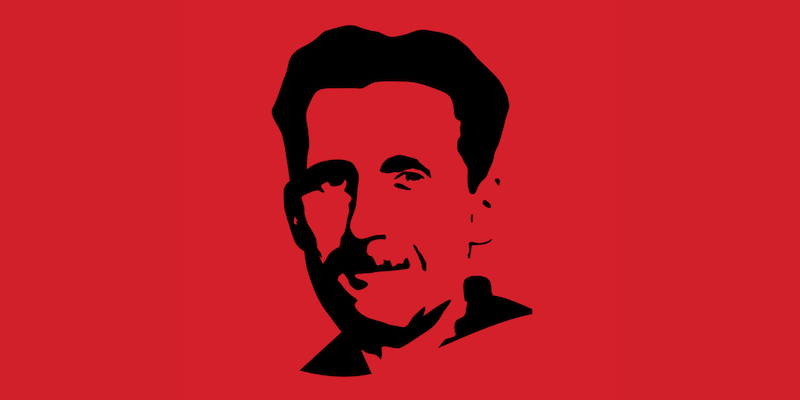June 16, 2025, 9:30am
The Orwell Prize for Political Writing and the Orwell Prize for Political Fiction reward books that meet “George Orwell’s own ambition ‘to make political writing into an art.’” This year, the finalists include plenty of heavy-hitters, writing about a wide array of political topics, from the Russian state to technology to feminism to climate change. The winners will be announced on June 25th in London, and will each receive £3,000. In advance of the ceremony, the finalists were asked an essential question:
Orwell claimed that prose writers have four ‘great motivations’ (putting aside the need to earn a living): sheer egoism; aesthetic enthusiasm; historical impulse; and political purpose. Why do you write?
Here’s what they said:
Political Writing
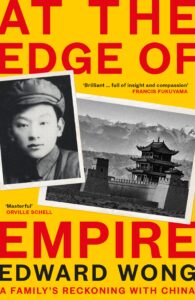
Edward Wong, At the Edge of Empire
I write to make sense of a world that often seems chaotic. I write to search for hope among people caught up in events that are unjust and violent and capricious. I write to try to bring more empathy into the world, because I believe this is a way to salvation or redemption for all of us.
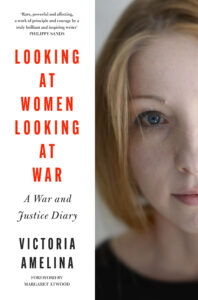
Victoria Amelina, Looking at Women, Looking at War
(answered by friend, Sasha Dovzhyk)
Writing was Victoria’s life. After Russia’s full-scale invasion threatened not only the author’s life but the existence of her country, writing became an instrument she used in her quest for justice: “I realized we might be at the beginning of a new stage of transformation of international law, and I would like to help this transformation happen as a citizen and writer. I don’t think law and human rights should be fields reserved for people with law degrees. Law is ultimately about human beings, or at least it should have people at the center; this makes law similar to literature.”
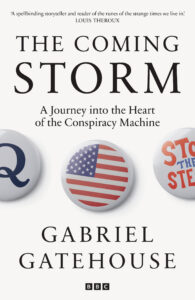
Gabriel Gatehouse, The Coming Storm
Writing, for me, is the process of sorting information, distilling a story, pruning it of superfluous detail, in order to make sense of the world. This process works, I hope, as much for the benefit of the reader as it does for mine.
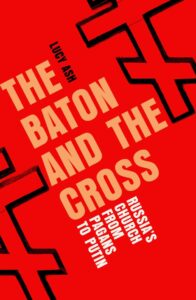
Lucy Ash, The Baton and the Cross
This book was largely motivated by anger at the hypocrisy of senior clerics and politicians who profess great piety but whose actions are anything but Christian. Initially I was struck by the church’s unenlightened attitude to women and its determination to block laws to protect victims of domestic violence. Later I was horrified that Patriarch Kirill—the country’s spiritual leader—became cheerleader in chief for a so-called Holy War after Vladimir Putin invaded Ukraine.
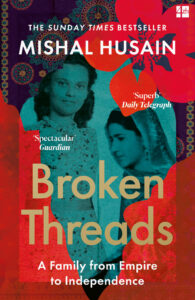
Mishal Husain, Broken Threads
I was propelled forward by a conviction that this story was worth telling, especially because its consequences remain with us in the tension and mistrust between India and Pakistan. The more I wrote and uncovered, the more I felt that the events of 1945-1947 went against decency and fair play, but I also wanted to keep ‘Broken Threads’ human and accessible, to show how political decisions affect individual lives. In some ways I was using the lens of my daily work as a journalist and questioner, but I was also searching for the bigger lessons and the more enduring truths.
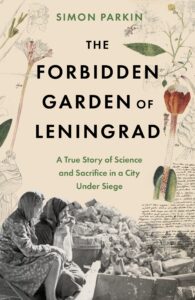
Simon Parkin, The Forbidden Garden of Leningrad
The work of a writer is, I think, to impose some order on the chaos of life. As a narrative non-fiction writer that effort typically involves sifting through a large amount of raw information, choosing which scenes and details to include, which to omit, and how best to arrange what remains. It’s a way to try to draw sense from the pandemonium of existence, to find a narrative line in all the things that are happening all the time. Grandly, there’s the hope that we might learn something from the people who went before us and how they responded to the things they faced, which might prove useful or instructive in our own time. But also, on a sentence level, there’s the simple desire to bring a little pleasure to readers through the writing, and to find connection in doing so.
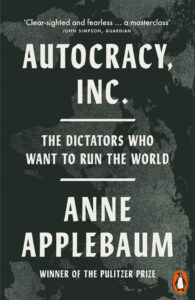
Anne Applebaum, Autocracy, Inc.
Reporting and research help me understand what is happening, or what has happened. Writing helps me make sense of it and, I hope, helps others make sense of it too.
Political Fiction
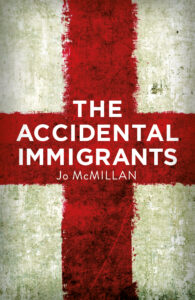
Jo McMillan, The Accidental Immigrants
I’ve written each of my novels for different reasons, and I wrote The Accidental Immigrants because we’re running out of time. Far-right movements are storming to power—via popular vote—all around the world. The crises that feed the far right are not going away; they’ll just multiply and intensify. As one of my characters says, they ‘control the streets, the courts, the media and the narrative’. Except not quite. Not yet. There are still stories to tell. Urgent ones. That’s why I wrote The Accidental Immigrants: to counter that narrative.
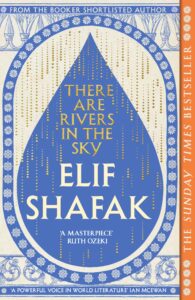
Elif Shafak, There Are Rivers in the Sky
All four motivations are relevant, in different degrees, but there is another reason, I believe. A fifth one: Freedom. Only when I write fiction, only when I am inside a novel, do I feel free. We live in a world that does not allow us to celebrate multiplicity. And yet inside a work of fiction, pluralism, empathy and connections are possible, a sense of our shared humanity. In Storyland there is no such thing as ‘us versus them’. In Storyland, the Other is my brother, my sister, I am the Other. I love how novels dismantle dualities, and this is why I see the long narrative form as one of our last remaining democratic spaces.
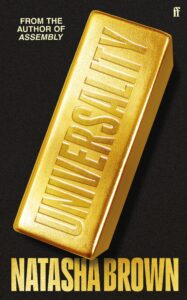
Natasha Brown, Universality
I’m fascinated by the question of neutrality in language—and how I, as a person who speaks, reads and thinks in English—can attempt to use English to assess its own neutrality. To me, novels are a brilliant medium to explore that question.
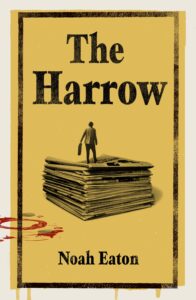
Noah Eaton, The Harrow
For me it’s an exploration, a way of posing a question about life and discovering the answer, putting a group of people into a situation and seeing what happens. And sheer egoism, obviously!
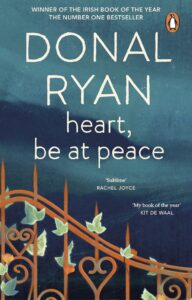
Donal Ryan, Heart Be at Peace
I think Orwell pretty much nailed it! I was not an especially clever child but my mother taught me to read before I started school and I knew that books would someday be my life. The egoism and politics and all the rest certainly insinuated themselves but I loved a nice sentence from a very early age.
